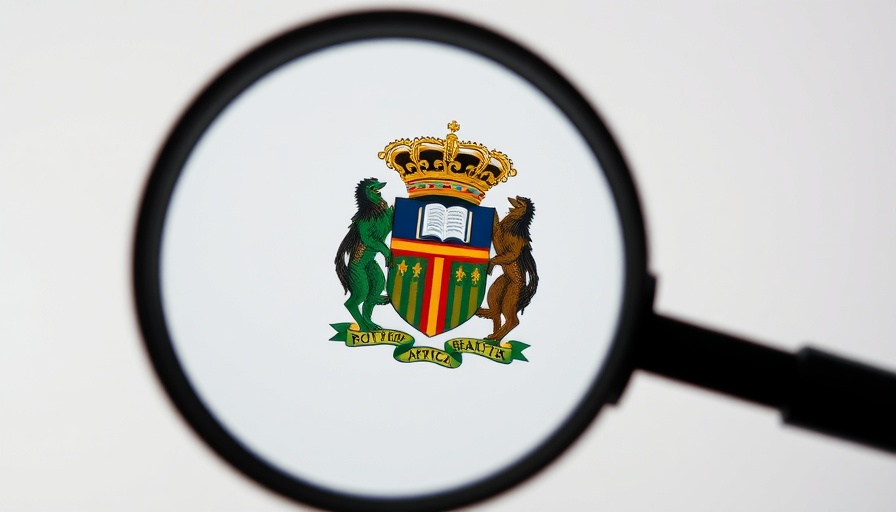
Understanding the Drive for Lifestyle Audits in South Africa
The ongoing commitment by the South African government to promote transparency and accountability has taken a significant step forward with the recent announcement from the Portfolio Committee on Public Service and Administration. The plans to ensure the Department of Public Service and Administration (DPSA) rigorously executes lifestyle audits for government officials underscore a critical push against corruption within public service. With rising economic pressures, high unemployment rates, and an atmosphere tainted by past state capture allegations, the need for stringent measures to foster integrity has never been more pressing.
Why Lifestyle Audits Matter in a Corruption-Ridden Landscape
At the heart of lifestyle audits is an operational framework designed to check the legitimacy of wealth among public service employees. As highlighted by Committee Chairperson Jan Naudé de Villiers, negligence in conducting these audits has been linked to systemic corruption throughout government sectors. As highlighted in recent discussions, this endeavor is part of broader efforts to standardize ethical conduct in public service in line with constitutional values.
Historical Context: From State Capture to Legal Frameworks
The past decade has seen South Africa grappling with the fallout of state capture, which has tainted public trust in government. As such, the introduction of mandatory lifestyle audits in April 2022, as discussed in the Corruption Watch, forms a foundational element of the National Anti-Corruption Strategy. The urgency has been echoed by experts noting that transparency measures are essential not just for governance but for improving citizens’ quality of life amidst the burdens of corruption and the impact of macroeconomic trends such as inflation and unemployment.
Examining the Legislative Backbone Supporting Lifestyle Audits
Underpinning the implementation of lifestyle audits is a complex legislative framework which includes the Financial Disclosure Framework and Lifestyle Audits Framework. These guidelines, as deliberated in meetings across various committees, aim to create a seamless connection between ethical conduct expectations and tangible practice. As noted by the Public Service Commission (PSC), the success of lifestyle audits hinges on clarity of purpose and diligent enforcement mechanisms.
Challenges and the Path Ahead: Ensuring Accountability
Although lifestyle audits offer a promising trajectory for accountability within the government, significant challenges remain. A notable issue raised is the insufficient training of risk officers and investigators tasked with executing these audits. The Northern Cape Provincial Government’s briefing underscored the need for enhanced capacity and resources to ensure effective implementation. As these measures are rolled out, the government's capability to act on audit findings will be tested. Questions loom: Will there be political will to enforce the necessary changes? How will public perception shift as accountability is pursued?
The Role of the Public in Supporting Anti-Corruption Efforts
Public engagement in these monitoring processes is crucial. Citizens must become vigilant advocates demanding transparency from their governments. Initiatives fostering whistleblower protection and support can empower South Africa's populace to challenge corruption directly, thus bolstering the integrity of public service. Recommendations also call for inter-agency collaborations to share vital findings that can lead to more comprehensive investigations.
Moving Forward: The Impact on South African Politics and Society
The rollout of lifestyle audits has implications that stretch far beyond individual accountability; they reflect a societal need for systemic reform. As seen in shifts across political landscapes, including the leading roles of parties like the ANC, Democratic Alliance, and EFF, there is a keen interest in holding public officials accountable. This trend highlights the changing tides of public sentiment towards governance, where ethical lapses are met with swift action and community outcry, signaling a broader desire for governmental integrity.
With lifestyle audits becoming a new norm, South Africans have a pivotal role to play in championing accountability and integrity within their government systems. As citizens react and interact with these developments, the overarching objective of building an ethical public service appears attainable. Collective commitment will determine the success of this initiative, shaping the trajectory of South African politics positively.
 Add Row
Add Row  Add
Add 




Write A Comment